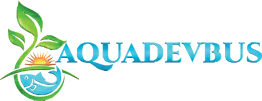
The AQUADEVBUS project, an ambitious initiative aimed at revolutionizing aquaculture education, is a testament to the power of collaboration and innovation. Spearheaded by a consortium of leading academic institutions, including the Great Lakes University of Kisumu, UiT the Arctic University of Norway, Rongo University, and the Turku University of Applied Sciences, this project is poised to make significant strides in sustainable aquaculture practices.
Empowering Aquaculture Education
At the heart of AQUADEVBUS lies a commitment to developing comprehensive educational programs that blend traditional knowledge with modern technological advances. The Great Lakes University of Kisumu takes the lead in managing, coordinating, and administrating the project, ensuring seamless collaboration across all work packages. Their expertise in project management sets a strong foundation for the initiative's success.
Innovative Learning for Sustainable Futures
UiT the Arctic University of Norway is at the forefront of curriculum development, offering a course in aquaculture that addresses the industry's current and future needs. Their approach combines rigorous research with practical application, ensuring students are well-prepared to contribute to the aquaculture sector's growth.
Enhancing Pedagogical Methods
Rongo University's focus on pedagogical teaching enhancement and methods introduces multi-competence learning frameworks into the Kenyan aquaculture curriculum. By fostering a hands-on learning environment and integrating digital tools, Rongo University aims to equip students with the skills necessary to thrive in a dynamic industry.
Embracing Digital Transformation
The Turku University of Applied Sciences leads the charge in integrating digital twins technology into aquaculture education. Their work not only redefines the learning landscape but also lays the groundwork for an aquaculture ecosystem that marries traditional learning with cutting-edge digital tools.
Broadening Horizons Through Dissemination and Communication
Rongo University also plays a crucial role in disseminating the project's achievements, ensuring that the groundbreaking work in aquaculture education resonates globally. Their strategic communication efforts aim to amplify the project's impact, celebrating milestones and fostering continued growth and collaboration in the sector.
The AQUADEVBUS project, with its collaborative framework and innovative approaches, promises to significantly advance aquaculture education, contributing to sustainable development goals and enhancing food security. Through the collective efforts of these institutions, the project is set to empower the next generation of aquaculture professionals, driving forward the industry with sustainability at its core.

